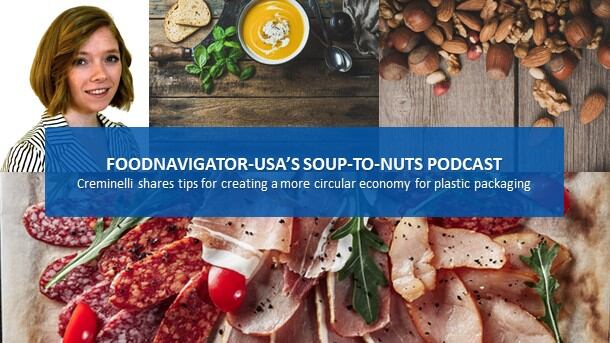In a blog post on Kellogg's website, Hughes wrote, "Our global food system is under tremendous pressure today. It’s estimated that two out of three people are undernourished, and we’re at risk of not meeting the United Nation’s SDG Goal No. 2 – ending hunger, achieving food security, and improving wellbeing and sustainable agriculture by 2030."
These issues are all intertwined and solving one requires a holistic approach, said Hughes, who discussed three strategies major CPG companies can implement to overcome some of the challenges facing today's food system.
1. Build on the foundation and heritage of original food system
"After 116-years of developing 1,000+ plant-based foods spanning 180 countries, we believe that the future of food relies – at least in part – on lessons from the past," said Hughes, who noted the importance of local sourcing of ingredients to create "local, culturally relevant foods."
"Changing consumer preferences, eating behaviors and the importance of ESG (Environmental, Social and Governance) have ignited a paradigm shift from food as a commodity to food as a celebration, a language, and even a personal ethos," he wrote.
But what does that food philosophy look like in practice for a company as large as Kellogg? According to Hughes, for Kellogg, the company follows a food systems approach (FSA) which acts as an interdisciplinary framework that analyzes the relationships between different parts of the food system and the outcomes of activities within the system in socio-economic and environmental/climate terms.
"It enables us to address food insecurity and balance the tradeoffs of nutrition, sustainability, access, and taste – ultimately creating a sustainable food system," Hughes said.
Read more about Kellogg's progress towards several of its corporate responsibility goals.
2. Develop collective solutions
While new technological breakthroughs and cutting edge farming techniques can help create a more efficient food system, effective industry solutions must start with input and cooperation between stakeholders up and down the value chain, Hughes added.
"To transform our food system and its impact on climate, we must bring farmers, suppliers, consumers, policymakers and NGOs to the table and create a shared vision with a shared responsibility to benefit all," he said.
Kellogg has made the commitment to support 1 million farmers and workers, especially women and small stakeholders, by 2030 by building partnerships tailored to their individual and communities' needs. So far, Kellogg has supported 440,000 farmers since it made the commitment in 2015.
Recently, Kellogg implements a $2 million five-year climate-positive agricultural program, called Kellogg's InGrained, that will reward rice farmers in the Lower Mississippi River Basin for their greenhouse gas emissions reductions.
Rice production accounts for an estimated 12% of total global methane emissions and through the program southern US rice farmers will be provided with training opportunities to transition to new farming practices that reduce the amount of GHG gasses they produce -- and be financially rewarded for doing so.
"This is one of many examples of partnerships we’re engaged with to create a sustainable food system that addresses the interconnected issues of health, hunger relief and climate," said Hughes.
3. Transition from linear to circular food system
"The current food system has supported a fast-growing population and rapid economic development. However, these gains have come at an unsustainable cost, and the time is now for a significant rethink," commented Hughes.
"We must move from a linear approach to a circular one that prioritizes regenerative production, reduces resource inputs and aims to ensure recovery for future uses and minimize wastage."
While such a transformative shift will take significant funding, time, and collective industry will power, it is necessary to redirect the long-term trajectory of the food system.
Taking a circular approach can be done in several, small ways the most straightforward being upcycling "rejected" foods, which Kellogg has done in a number of its brands.
For instance, 75% of the potatoes used in its Pringles brand are considered "rejected" and would have gone to landfill or used for non-human consumption. The fruit filling in its Nutrigrain bars comes entirely from unsaleable misshapen fruit. The company has also teamed up with UK-based Salford Brewery to turn "less-than-perfect" Rice Krispies and Coco Pops into beer.
"An equitable food system creates a new paradigm where everyone has a seat at the table, can fully participate, gain access and prosper. It’s critical we as an industry work together to achieve this," added Hughes.




